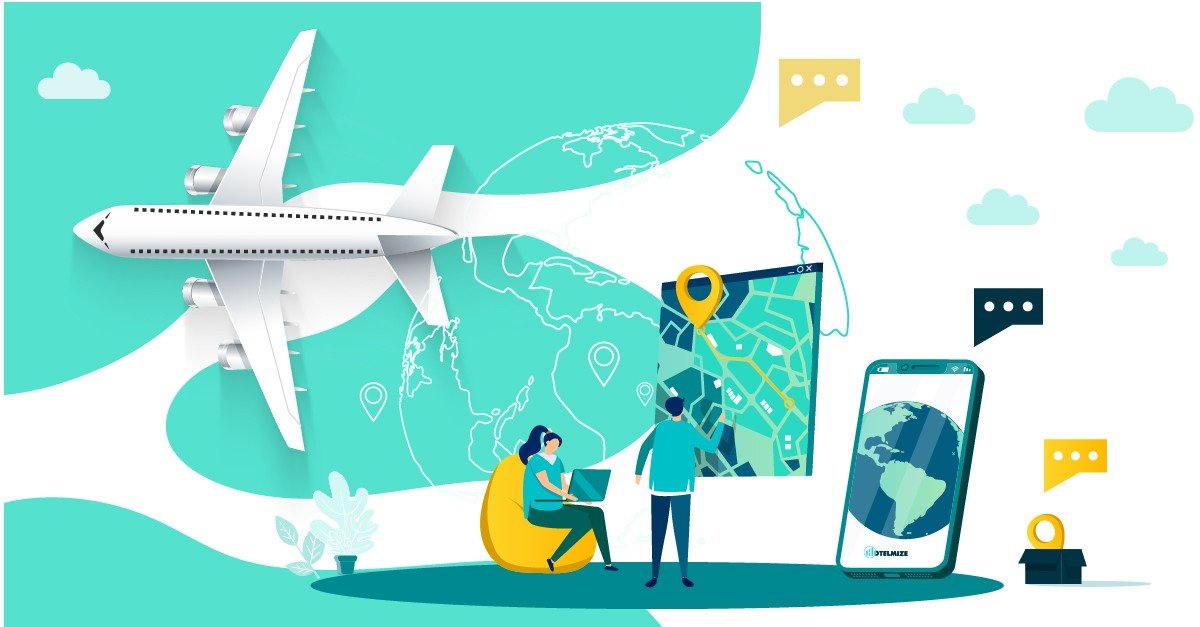Technology has revolutionized many aspects of our lives, and the travel industry is no exception. From booking flights to navigating foreign cities, technological advancements have significantly enhanced the way we travel. As we look toward the future, it’s clear that technology will continue to shape and redefine the travel experience. Here’s a look at how technology is impacting the travel industry and what travelers and businesses can expect in the coming years.
1. Enhanced Booking Experiences
AI and Machine Learning: AI-powered tools and algorithms are transforming the way travelers search for and book their trips. Personalization engines analyze user preferences and past behaviors to recommend tailored travel options, such as flights, hotels, and activities.
Mobile Apps: Travel apps have become indispensable, offering seamless booking, real-time updates, and personalized recommendations. Apps like Expedia, Booking.com, and TripAdvisor provide users with an array of options at their fingertips.
Chatbots and Virtual Assistants: AI-driven chatbots and virtual assistants are available 24/7 to assist travelers with bookings, answer questions, and resolve issues. These tools improve customer service and streamline the booking process.
2. Smart Travel Solutions
Smart Airports and Hotels: Airports are increasingly adopting smart technologies, such as biometric screening and automated check-ins, to enhance the travel experience. Hotels are also integrating smart room features, including voice-controlled assistants and automated lighting systems.
Wearable Technology: Devices like smartwatches and fitness trackers offer travelers convenience and connectivity. They can provide real-time flight updates, navigation assistance, and health monitoring during trips.
Internet of Things (IoT): IoT technology allows for greater connectivity and automation within the travel industry. For example, IoT-enabled luggage tags can track your bag’s location, and smart thermostats in hotel rooms can adjust settings based on your preferences.
3. Improved Travel Safety and Security
Advanced Security Screening: Technology like body scanners and facial recognition is improving security measures at airports, making the screening process faster and more accurate.
Real-Time Alerts: Mobile apps and travel platforms provide real-time alerts about flight delays, gate changes, and safety updates, keeping travelers informed and prepared.
Data Encryption and Privacy: Enhanced data protection measures ensure that travelers’ personal and financial information remains secure during transactions and online interactions.

4. Personalized Travel Experiences
Customized Itineraries: AI-driven platforms and travel agencies use data analytics to create personalized itineraries based on individual preferences, such as activities, dining options, and accommodation choices.
Augmented Reality (AR): AR applications enhance travel experiences by overlaying digital information on the physical world. For instance, AR-guided city tours can provide historical context and navigation assistance through your smartphone.
Virtual Reality (VR): VR technology allows travelers to explore destinations virtually before making a decision. Virtual tours of hotels, attractions, and destinations help travelers make more informed choices.
5. Sustainable and Eco-Friendly Travel
Green Technology: Advances in technology are contributing to more sustainable travel practices. For example, electric and hybrid vehicles reduce carbon emissions, and energy-efficient buildings and infrastructure minimize environmental impact.
Smart Travel Solutions for Sustainability: Apps and platforms that focus on eco-friendly travel options help users find sustainable accommodation, transportation, and activities. These solutions encourage responsible tourism and support green initiatives.
Carbon Offset Programs: Many travel companies and airlines offer carbon offset programs that allow travelers to compensate for their carbon footprint by investing in environmental projects.
6. Future Trends in Travel Technology
Blockchain Technology: Blockchain is poised to revolutionize the travel industry by enhancing transparency and security in transactions, loyalty programs, and booking processes.
5G Connectivity: The rollout of 5G technology will offer faster and more reliable internet connectivity, improving mobile app performance and enabling real-time communication and data sharing.
Robotics and Automation: Robotics and automation are expected to play a larger role in the travel industry, from automated check-in kiosks to robotic concierge services, making travel more efficient and convenient.
Conclusion
Technology continues to drive innovation and transformation within the travel industry, offering travelers unprecedented convenience, personalization, and safety. As we move into the future, emerging technologies like AI, IoT, and blockchain will further enhance travel experiences and streamline operations. By embracing these advancements, travelers and businesses alike can look forward to a more connected, efficient, and enjoyable travel experience.




